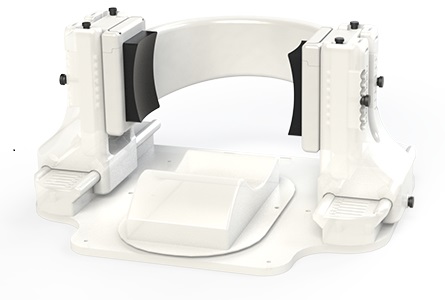Ultrasound Device Noninvasively Stimulates Deep Brain Regions for Treating Chronic Pain
Posted on 30 Aug 2024
Pain serves as a vital biological warning, but in many conditions, it becomes distorted. Chronic pain sufferers often deal with persistent, erroneous pain signals originating from the brain, signaling non-existent injuries such as healed wounds or missing limbs. These individuals are in constant search for new therapies. Now, a new device using focused ultrasonic waves to noninvasively target and modulate pain circuits offers a promising breakthrough.
Diadem, the new biomedical device developed by researchers at the University of Utah’s John and Marcia Price College of Engineering (Salt Lake City, UT, USA) and Spencer Fox Eccles School of Medicine (Salt Lake City, UT, USA), employs ultrasound technology to stimulate deep brain areas, aiming to disrupt the faulty signals responsible for chronic pain. Unlike other neuromodulation techniques that utilize electrical or magnetic fields, Diadem can specifically target a region known as the anterior cingulate cortex, which traditional methods cannot accurately reach. Prior to treatment, patients undergo a functional MRI to map this target area, allowing researchers to precisely adjust the ultrasound emitters to account for anatomical variances like skull density and brain structure.

The device's effectiveness was highlighted in a recent clinical trial, the results of which appeared in the journal Pain. The study involved 20 chronic pain sufferers who underwent two 40-minute sessions with the Diadem device, receiving either actual or placebo ultrasound stimulation. The outcomes assessed a day and a week post-treatment showed that 60% of those in the real treatment group reported significant pain reduction at both time points. Following these encouraging results, the researchers are moving towards a Phase 3 clinical trial, which is the final stage before seeking FDA approval for public use of Diadem.
“The rapid onset of the pain symptom improvements as well as their sustained nature are intriguing, and open doors for applying these noninvasive treatments to the many patients who are resistant to current treatments,” said Jan Kubanek, a professor in Price’s Department of Biomedical Engineering, who conducted the study.
Related Links:
John and Marcia Price College of Engineering
Spencer Fox Eccles School of Medicine














